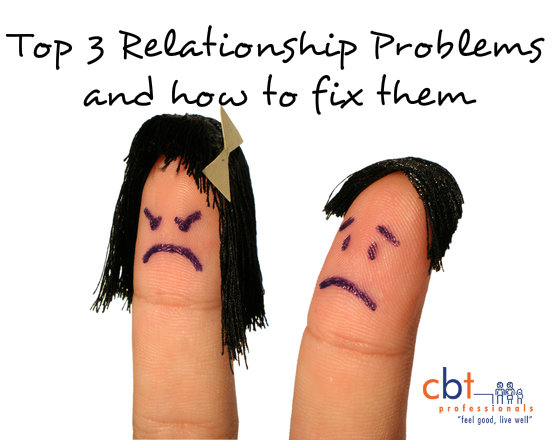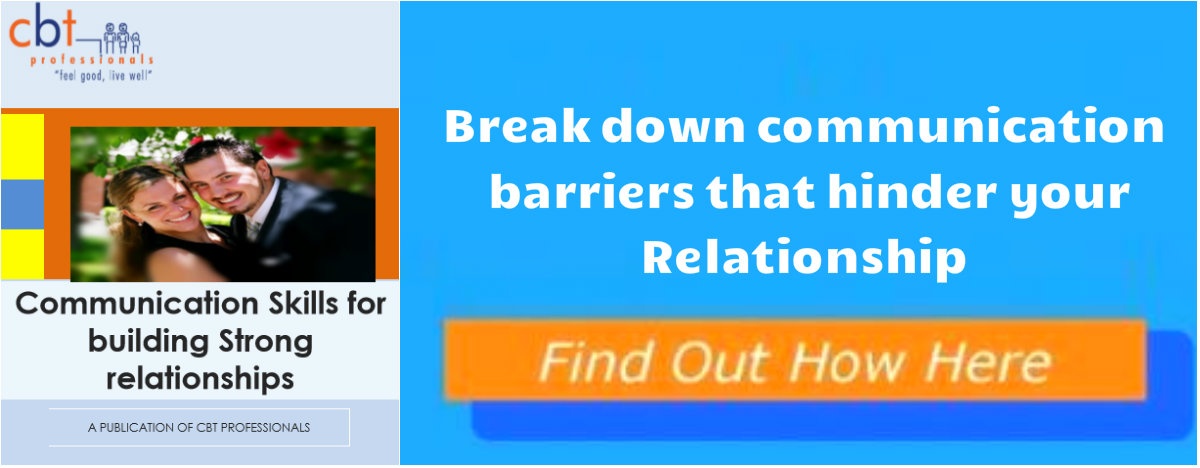Top 3 Relationship Problems and How to Fix Them
“Here we are again, arguing about the same issues. When will you listen to what I’m saying? You never understand my point of view. I can’t do this anymore. If you’re not going to change we may as well end this now.”
Sound familiar? Well, unfortunately this statement isn’t uncommon amongst couples who are experiencing relationship problems. This blog is going to share with you some of the types of relationship problems that are common in relationships, how to identify when you need help, ABCD to Repairing Relationship Problems and how to get help.
Top 3 Relationship Problems
So what causes relationship problems? Often it’s money, or lack there of. Financial stress is one of the biggest causes of relationship problems as identified in a study by Relationships Australia and Credit Union Australia in 2011. Financial stress is believed to be a major threat to relationships due to the pressure it puts on the couple, leading to increasing conflict, communication breakdown and negativity.
Which leads to the next leading cause of relationship problems – communication difficulties, closely followed by differences in expectations and values, lack of trust and lack of commitment.
Dr. John Gottman has been studying couples for the last four decades to understand why some relationships are like ticking time bombs that result in divorce or ongoing dissatisfaction. Gottman can predict the outcome of a relationship ninety-six percent of the time within the first three minutes based on the level of negativity present, described as the Four Horsemen of the Relationship Apocalypse.
The Four Horsemen of the Relationship Apocalypse:
- Criticism – Blame and criticism of the other in an argument leads to increased anger, hostility, and resentment.
- Defensiveness – According to Gottman, our natural response when criticized is to counterattack or act like an innocent victim and whine.
- Contempt – Gottman found this to be the highest predictor of breakups. Contempt is acting like you’re a better or superior person than they are and insulting and talking down to your partner.
- Stonewalling – Shutting down or tuning out is a major relationship problem according to Gottman, as it says to your partner “I don’t care.”
How to identify when you need help
Are there any of the following happening regularly:
- Frequent arguing
- Angry outbursts
- Avoidance or shutting down (e.g. prefer to stay at work)
- Physical conflict or Family Violence (see below ‘Family Violence)
- Difference in opinions, personalities, beliefs, values or goals
- Change in circumstances e.g. new baby, blending families, illness
- Financial problems
- Issues with sex and intimacy
- Alcohol or drug use
- Gambling problems
- The onset of mental health problems or stress in either partner
- Withdrawal from others
- Lack of enjoyment
- Bullying/harassment
- Natural disasters
- Lack of trust/respect in a relationship
- Criticism
- Defensiveness
- Contempt
- Stonewalling
If you answered yes to any of the above, speak to someone about it, a trusted friend or family member to start with and seek professional assistance if there are no improvements seen.
- If you are experiencing more than one of these regularly or any of the red ones highlighted then professional help is recommended – this could be with your partner, or even speaking to a psychologist on your own may help you with your relationship problems.
-
Relationship Problems and Family Violence
Sometimes relationship problems get out of hand and threaten the emotional and physical safety of family members, including children. Violent, abusive or intimidating behaviour by a partner, carer or family member to control, dominate or cause fear is known as domestic and family violence. It doesn’t have to be physical abuse. It can be emotional, psychological, financial, sexual or other types of abuse (see examples below).
Witnessing or experiencing domestic/family violence can have a damaging effect on children. It is important that you and your family get the support that you need. When there is domestic or family violence occurring it is important for any or all of the family members to seek professional advice urgently (see contact details below). Examples of domestic or family violence are:
- Physical harm – threats of self/physical harm, smashing things, hurting pets
- Verbal abuse – name calling, yelling
- Emotional and psychological abuse – humiliation, put down, blaming
- Sexual abuse – and rape
- Financial abuse – restrictions on or unfair control of money
- Social abuse – controlling where you go and who you see
- Stalking – following, making excessive phone calls, texts or emails
- Spiritual, values or cultural abuse – controlling practices/choices
The ABCDE Approach to Repairing Relationship Problems:
- Accept your differences – it can help avoid unnecessary conflict if you can recognise that people have different ideas, opinions and beliefs and you may not always be in agreement. Tolerance and compromise are key. Use time-out.
- Be caring and concerned – treat your partner like your best friend. Be kind and considerate of their needs.
- Communication is the key and often the first step to finding solutions. Be calm and honest about your concerns when discussing your problems with a loved one. Avoid the Four Horsemen! Negative communication can be destructive to relationships.
- Dedicate time and effort – relationships can be hard at times and require work to keep it on track. Make it your highest priority – it is worth it. Remember to seek professional help when you don’t see improvements or the issues remain.
- Ensure you have fun together – even when things are tough, it’s important to find the time to have fun with your loved ones.
For your free guide on relationship communication, you can download our eBook here. It is packed with lots of great advise on communication skills that are known to reduce conflict and strengthen relationships.
Where to get further help for relationship problems:
- Talk to friends/family
- Attend relationship, family or individual counselling
- Attend courses/workshops in communication, parenting, budgeting and positive communication skills
- See your GP if you are concerned about mental health problems in yourself or others, they may recommend a mental health care plan for you
- Call a 24 hour helpline like
- 1800 Respect for family abuse (1800 737 732)
- Men’s Helpline (1300 789 978)
- Lifeline (131114)
- Kids Helpline (1800 551 800)
THREE CONVENIENT LOCATIONS
MOUNT GRAVATT
Mt Gravatt Medical PrecinctSE 105, 1808 Logan Rd
Upper Mount Gravatt QLD 4122



